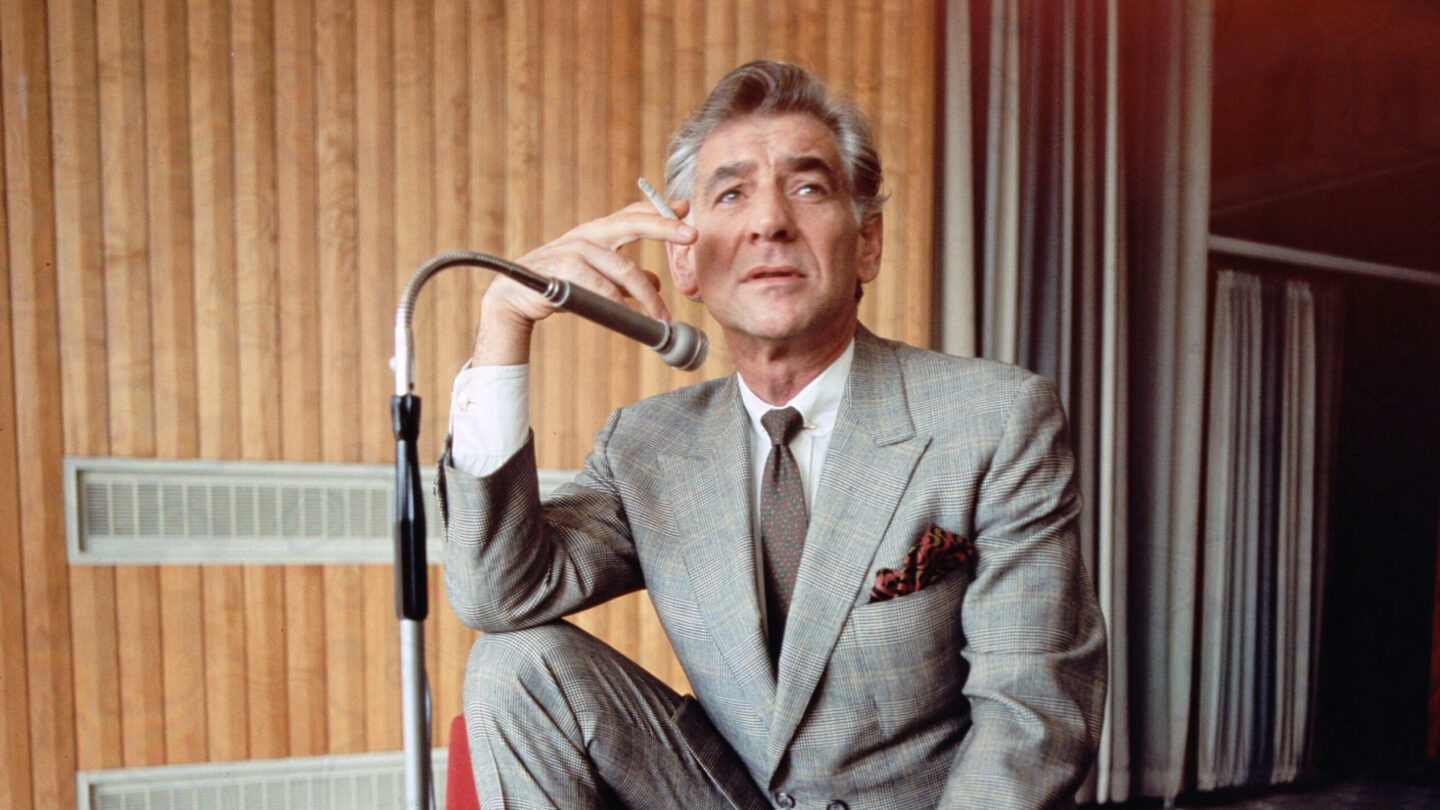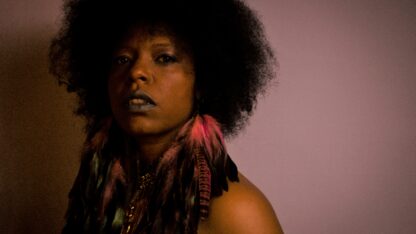Leonard Bernstein famously said, “Music can name the unnameable and communicate the unknowable.” Communicating was another extraordinary talent of Bernstein. The conductor and composer is the subject of “Bernstein’s Wall,” a recent documentary by the award-winning director and producer Douglas Tirola.
The film premiered at the Tribeca and Telluride film festivals, and will screen in Atlanta for the Atlanta Jewish Film Festival on Wednesday, Sept. 21, at the Byers Theater in City Springs. Tirola joined “City Lights” host Lois Reitzes via Zoom to talk about the film and his admiration of the late Leonard Bernstein.
Interview highlights:
How Tirola aimed to capture Bernstein’s philosophy of art:
“The way I imagined it is that Bernstein has just played some amazing concert somewhere in Europe, and he goes back to his hotel, and he sits at the bar or the restaurant, and he ends up having a conversation with a young person, and he goes on to tell him… his life story, but really as a way to talk about social change, and art, and the meaning of life – you know, his philosophy,” said Tirola. “He’s thinking about dates in history and dates in his own life and reflecting on it. So right when the movie starts, he says, ‘I’m looking for these answers, and they lie deep inside my soul, and I’d like to share them with you.’ And then, he brings about the question, ‘What is the role of art and the artist to create social change?’ And he says, ‘It’s not necessarily the art. It might just be the artist.'”
“That’s really why I was drawn to make the film, is when I heard and read him, read his writing and speeches, where he says these things, I wanted to get those thoughts out into the world. I think they’re very current, and it’s very lucky that the way he sounds does not sound 30 years ago – it sounds like he’s alive right now. And for better or worse, many of the things he’s talking about are challenges we still deal with today, whether they’re national, global challenges, or personal challenges.”
On Bernstein’s relationship to his Jewish heritage:
“My view of it is, I don’t think he was in touch with his Judaism as much, only because his father so valued the religion, and he had these issues with his father. But I think over time, he comes to embrace it, and it becomes more of what he’s talking about. As a filmmaker, I’m hoping the movie, or part of what the movie says, is his Judaism and his relationship with the ethics of Judaism – not just the religion as a whole, but the real philosophy and values of it – is really what’s driving him the whole time.”
“It’s around the time that the Berlin Wall’s going up. He is performing in Berlin with the New York Philharmonic. It happens to be Rosh Hashanah, and he gives this prayer in Hebrew,” recounted Tirola. “We don’t know exactly who’s in the audience, but if you think about how… it’s just 15 or so years after the end of World War II; if you think about who’s probably, or at least the children of who’s in that audience, I think it’s a very political act… He says it right there, what he’s trying to do with the fact that he’s a performer and an artist, and with the music and then a message.”
As much an educator and communicator as a conductor:
“He talks about [how] people assume what he likes about being a conductor is that he waves his arms or points his baton, and everybody does what he wants. And he says, really for him, it’s this idea of trying to bring the best out of the other hundred musicians in the orchestra,” Tirola said. “He has this great line that I just love, where he says what he likes about it is, ‘It’s about us breathing together. It’s an experience between all of us, not just somebody who’s pointing and telling people what to do.’ And that’s his way of communicating.”
“Then, of course, as a conductor, when he performed, [he did] this really groundbreaking thing of turning to the audience and explaining what they were going to do, and histories behind some of the music, and really opening it up to the audience whether you had elite knowledge of the classical music, but also making it welcoming to people who don’t have as much knowledge.”
“Bernstein’s Wall” premieres Sept. 21 at the Byers Theater in City Springs for the Atlanta Jewish Film Festival. Tickets and more information are available at https://citysprings.com/events/atlanta-jewish-film-festival-bernsteins-wall









